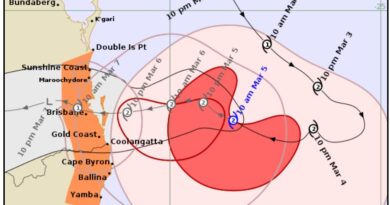Alberta Looks to Japan for New LNG Deals in Light of US Tariff Threats
TOKYO (Reuters)—Canada’s Alberta province, a major gas producer, is seeking new export markets in response to a U.S. tariff threat. Expanding in Japan has become a key focus, according to Rebecca Schulz, the minister of environment and protected areas.
During an interview in Tokyo, Schulz stated, “Given what we’ve seen in the United States, this is reinforcement that we need to diversify our export markets, and Japan, our existing relationship, is going to be a vital area of focus.”
She has engaged with officials, business lobbies, and company representatives from JERA, JOGMEC, and the Japan Gas Association, among others, over the past week.
Schulz emphasized, “Energy security is a significant focus for many countries, including Japan and Canada. Many of our discussions revolved around meeting energy demand.”
While overall LNG demand in Japan is decreasing, there is potential for an increase if the country’s renewable energy transition is slow. This week, Mitsubishi announced a review of offshore wind operations in Japan due to rising costs.
U.S. President Donald Trump and Japan’s Prime Minister Shigeru Ishiba are expected to discuss a proposed Alaska LNG project during their meeting. Competition for major LNG buyers is intensifying.
U.S. Senator Dan Sullivan recently urged Japan and other U.S. allies in Asia to support the Alaska LNG project, cautioning that strategic rival China could step in if they are not interested.
Canada is set to begin exports to Japan later this year from the LNG Canada project, with Mitsubishi as a shareholder. The country is also exploring additional export facilities.
In regards to Alberta’s competitive advantages compared to the U.S., Schulz highlighted shorter shipping times and lower geopolitical risks due to geographic factors.
Schulz mentioned, “There are several projects in progress for additional market capacity, with a strong focus on expanding partnerships with Japan.”





